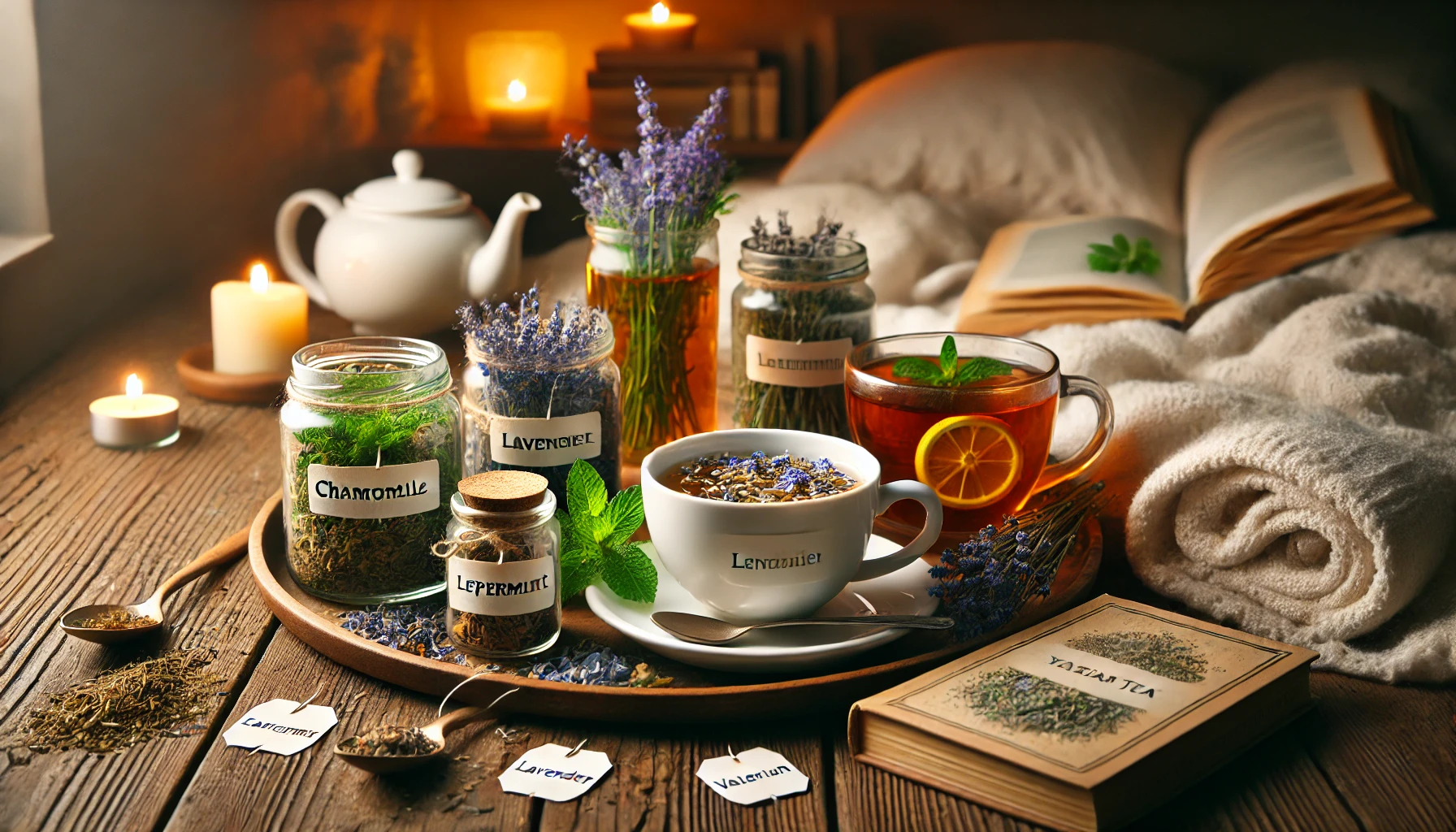In a fast-paced world filled with screens, stress, and sleepless nights, many people are turning to natural remedies to find calm and improve their sleep quality. One of the simplest and most soothing ways to unwind is by sipping a warm cup of herbal tea before bedtime. Natural teas not only help the body relax, but they also prepare the mind for a deeper and more restful sleep. In this article, we’ll explore some of the most effective natural teas that promote relaxation and a better night’s rest.
Why Herbal Teas Work for Sleep
Unlike caffeinated drinks that stimulate the nervous system, herbal teas are often made from flowers, herbs, roots, or spices that contain calming properties. Many of these teas are caffeine-free and contain compounds like apigenin, linalool, or melatonin, which interact with brain receptors to induce sleepiness or reduce anxiety.
Drinking tea before bed also creates a peaceful nightly ritual. The simple act of slowing down and sipping something warm tells your body that it’s time to relax. Let’s dive into the best natural teas to include in your bedtime routine.
1. Chamomile Tea
Chamomile is one of the most well-known natural sleep aids. It contains apigenin, a natural antioxidant that binds to specific receptors in your brain to decrease anxiety and initiate sleep. Chamomile has a mild, sweet flavor and is gentle on the stomach, making it perfect for nightly use.
Best for: Reducing anxiety, falling asleep faster, calming the nerves.
2. Lavender Tea
Lavender is famous for its relaxing aroma, but it’s just as effective when brewed into tea. Lavender tea has been shown to reduce stress levels, ease restlessness, and improve sleep quality—especially in people with mild insomnia.
Best for: Easing stress, lowering heart rate, improving overall sleep quality.
3. Valerian Root Tea
Valerian root has been used for centuries as a natural sedative. This tea has a strong, earthy taste and is best consumed 30 to 60 minutes before bedtime. Studies show that valerian root may help reduce the time it takes to fall asleep and improve sleep depth.
Best for: Insomnia, nervous tension, restless sleep.
4. Lemon Balm Tea
Lemon balm is a member of the mint family and is known for its citrusy scent and calming effects. It’s commonly used to improve mood and cognitive function, but it also has mild sedative properties that make it a great tea for evening use.
Best for: Calming the mind, reducing anxiety, improving sleep onset.
5. Passionflower Tea
Passionflower tea is made from the leaves, stems, and flowers of the passionflower plant. It contains flavonoids that act on GABA receptors in the brain, producing a mild sedative effect. Passionflower is especially helpful for those who experience circular thoughts or have trouble “shutting off” their brain at night.
Best for: Racing thoughts, anxiety, improving sleep duration.
6. Peppermint Tea
While not a sedative, peppermint tea is excellent for calming the digestive system and relaxing tense muscles, which can indirectly support better sleep. Its refreshing taste also makes it a popular evening tea.
Best for: Soothing the stomach, muscle relaxation, unwinding after dinner.
7. Magnolia Bark Tea
Magnolia bark has been used in traditional Chinese medicine to reduce anxiety and improve sleep. It contains honokiol and magnolol, two natural compounds that affect the GABA receptors in the brain and act as natural tranquilizers.
Best for: Chronic stress, insomnia, nighttime waking.
8. Rooibos Tea
Rooibos is a South African herbal tea that is naturally caffeine-free and rich in antioxidants. While not sedative, its calming effects and low tannin content make it a good bedtime beverage.
Best for: Antioxidant support, calming the mind, promoting relaxation.
9. Holy Basil (Tulsi) Tea
Holy basil is considered a sacred herb in Ayurvedic medicine and is known for its adaptogenic properties. It helps balance cortisol levels and reduce stress, promoting a sense of peace and calm.
Best for: Managing stress-related insomnia, balancing hormones, evening relaxation.
Tips for a Better Bedtime Tea Ritual
- Steep it right: Most calming teas need to be steeped for at least 5–10 minutes to release their full benefits.
- Avoid sugar: Adding sugar may disrupt your blood sugar levels and impact your sleep. Opt for honey if you want a touch of sweetness.
- Create a routine: Drink your tea 30–60 minutes before bed in a quiet, dim environment to signal to your body that it’s time to wind down.
- Combine herbs: You can mix herbs like chamomile and lavender or valerian and lemon balm for a more powerful effect.
Precautions to Consider
While herbal teas are generally safe, it’s important to use them mindfully:
- Pregnant or breastfeeding individuals should consult a healthcare provider before using certain herbs like valerian or passionflower.
- If you are on medication, especially sedatives or antidepressants, check for interactions.
- Don’t overuse. Teas like valerian root can cause grogginess if taken in excess.
Your Natural Path to Better Sleep
Incorporating natural teas into your bedtime routine is a gentle and effective way to support better sleep. Whether you’re struggling with occasional insomnia or simply want to relax after a long day, these herbal remedies can help you create a calming nighttime ritual. Try out different teas and find the one that best suits your needs—you might be surprised how much of a difference a simple cup can make.
